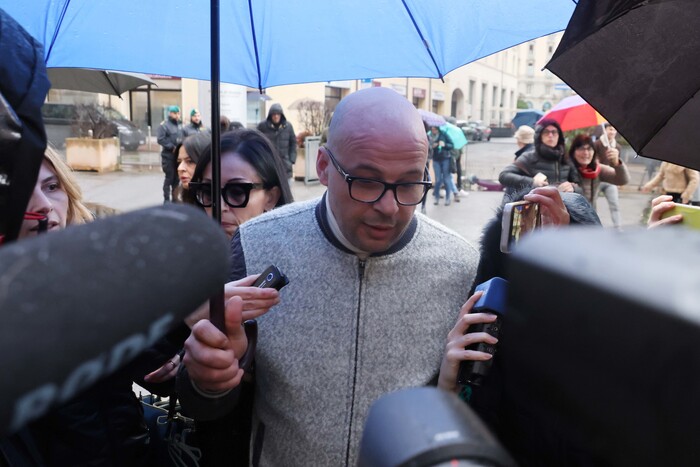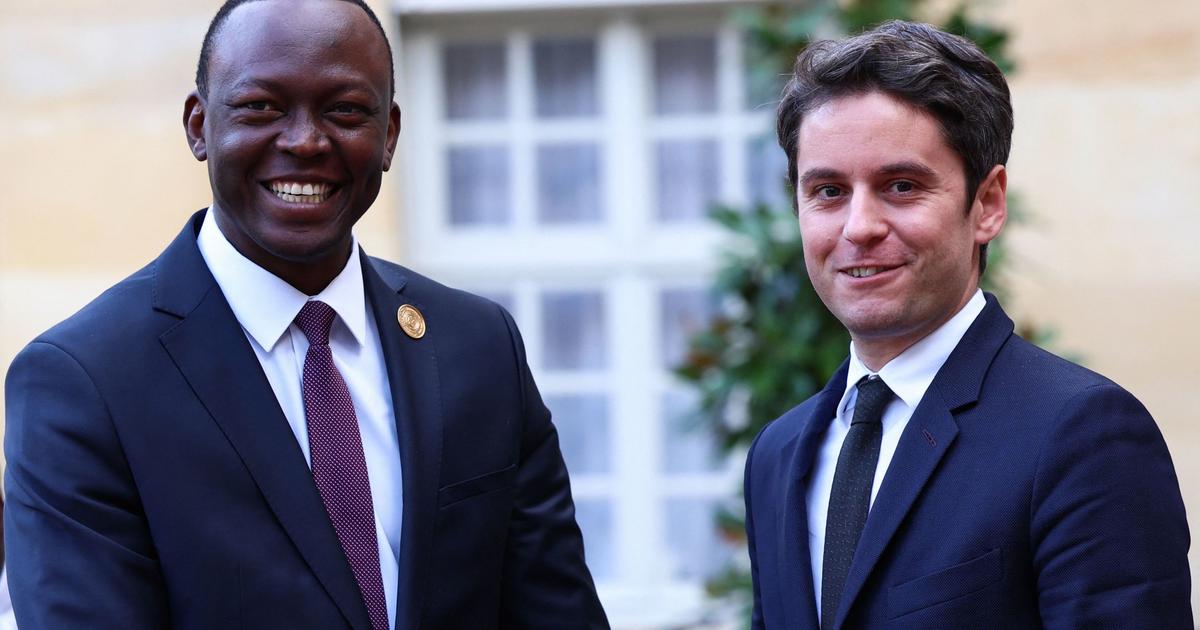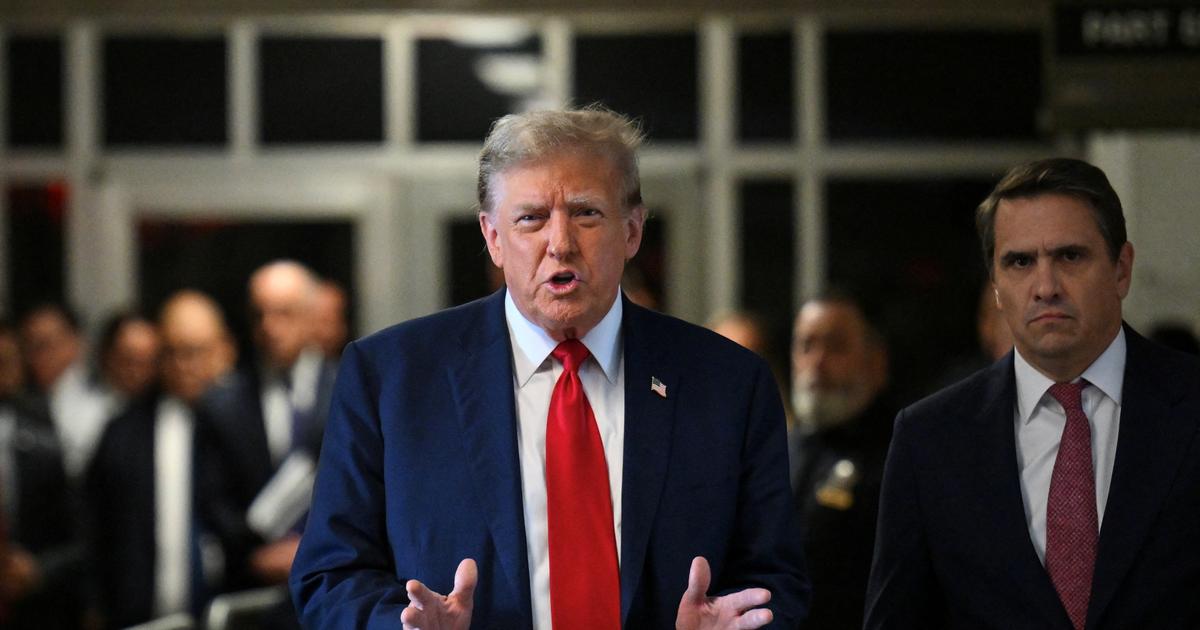The former interim president of Bolivia, Jeanine Áñez, is transferred from prison this Saturday in La Paz. Stringer / EFE
It is paradoxical that the former interim president of Bolivia, Jeanine Áñez, is detained, among others, for the crime of “terrorism”.
During his government, which ended in November, prosecutors used the same definition of "terrorism," which is excessively broad and ambiguous in Bolivian law, to persecute his predecessor, Evo Morales.
Both cases highlight the risks involved in a justice system that responds to the power of the day, and the urgent need to promote profound reform.
The lack of independence of the Bolivian justice system worsened during the 14 years that Morales was in power.
During Áñez's government, there was no improvement.
On the contrary, his government publicly pressured prosecutors to further its political interests, which resulted in criminal investigations for sedition or terrorism against more than 100 supporters of the Movement for Socialism (MAS).
Many of those cases were motivated by political interests.
The more than 1,500-page file against Morales, to which we had access, did not contain any evidence that he had committed acts that could effectively qualify as terrorism.
Similarly, the terrorism charges against Áñez, which we also examine, are unfounded.
Morales was never detained, as he went into exile abroad.
Áñez, however, faces four months of preventive detention and up to 24 years in jail if convicted.
In October, Luis Arce, the MAS candidate, won the presidential election by a wide difference.
Shortly after, Arce said in an interview with EL PAÍS that justice "is a debt that we have as MAS" and promised that, during his government, there would be no political pressure on judges or prosecutors.
In November, he created a high-level commission, with opposition figures and the government, to propose reforms to establish an independent justice system.
Today the presidential statements and initiatives seem empty promises.
In fact, the current government has defended the arrests of Áñez and two of his former ministers, whom the prosecution has accused of "terrorism", "sedition" and "conspiracy" for their alleged participation in the coup against Morales in November 2019. The prosecution has also issued an arrest warrant against three other former ministers.
He opened the case against all of them based on a complaint from a former MAS deputy.
The opposition denies that there was a coup and maintains that Morales resigned after thousands of Bolivians demonstrated against alleged electoral fraud in the October 2019 elections. Election observers from the Organization of American States and the European Union they denounced serious irregularities during that process.
MAS supporters, on the other hand, claim that there was no fraud and that opposition leaders conspired to seize power.
What is clear is that the high command of the Police and the Armed Forces "suggested" to Morales that he resign.
He did so.
The Attorney General's Office should rigorously investigate complaints of violations of the right to vote and attempts to violate the popular will expressed at the polls, either as a result of electoral fraud, threats, or other actions designed to affect the results.
The formal indictment against Áñez and the two former ministers that we were able to hear alleges that the three have "promoted, created, directed, formed part of and provided support" to organizations whose objective was to break the "constitutional order" of the country.
It is not clear from the document what the evidence is against them.
Áñez, who was then the second vice president of the Senate, became interim president on November 12, 2019, after the resignation of the four authorities, the MAS, who preceded her in the line of succession.
One of them, the president of the Chamber of Deputies, was forced to resign after a mob took his brother hostage and demanded that he retire from office.
The Constitutional Court declared that the line of succession should be followed and that, therefore, Áñez was the legitimate interim president of Bolivia.
Serious human rights violations were committed during his presidency, and those responsible have yet to answer for their crimes.
On November 15, 2019, Áñez issued a decree that granted excessive and discretionary powers to the military forces to use force against protesters.
That same day, 10 MAS supporters were killed in the central town of Sacaba, and on November 19 another 10 were killed in Senkata, on the outskirts of La Paz.
Various witnesses told us that state forces opened fire on unarmed protesters in both cases.
But the current criminal process does not refer to these serious abuses, but to Áñez's actions before becoming interim president, as explained by the current Minister of Justice.
MAS supporters and detractors also appear to have committed serious acts of violence in October and November 2019, including deliberate arson and kidnappings.
Some MAS supporters also allegedly murdered two anti-Morales protesters in the town of Montero.
In February 2021, the Plurinational Assembly, where the MAS has a majority, approved a decree with extremely imprecise language that establishes amnesties and generic pardons to benefit those prosecuted during the Áñez government for crimes related to the “political crisis” that began in October 2019. MAS leaders have made clear that the decree is designed to favor only MAS sympathizers.
The victims deserve genuine and impartial justice, which punishes all those responsible for crimes, without receiving amnesties or pardons based on their political affiliation.
Biased investigations that violate the rights to due process, that undermine the rule of law and that are questioned inside and outside of Bolivia, do not help these victims in any way.
During Áñez's government, we urged the Public Ministry to drop capricious and abusive charges, including against Evo Morales, and to respect the human rights of all, without selectivity.
Today, before the Arce government, we make the same call.
César Muñoz Acebes
is a senior researcher at Human Rights Watch and
José Miguel Vivanco
is director for the Americas at Human Rights Watch.


/cloudfront-eu-central-1.images.arcpublishing.com/prisa/6RSPZCXGGNEPDGHAH2LCUARWSI.JPG)








/cloudfront-eu-central-1.images.arcpublishing.com/prisa/KMEYMJKESBAZBE4MRBAM4TGHIQ.jpg)


